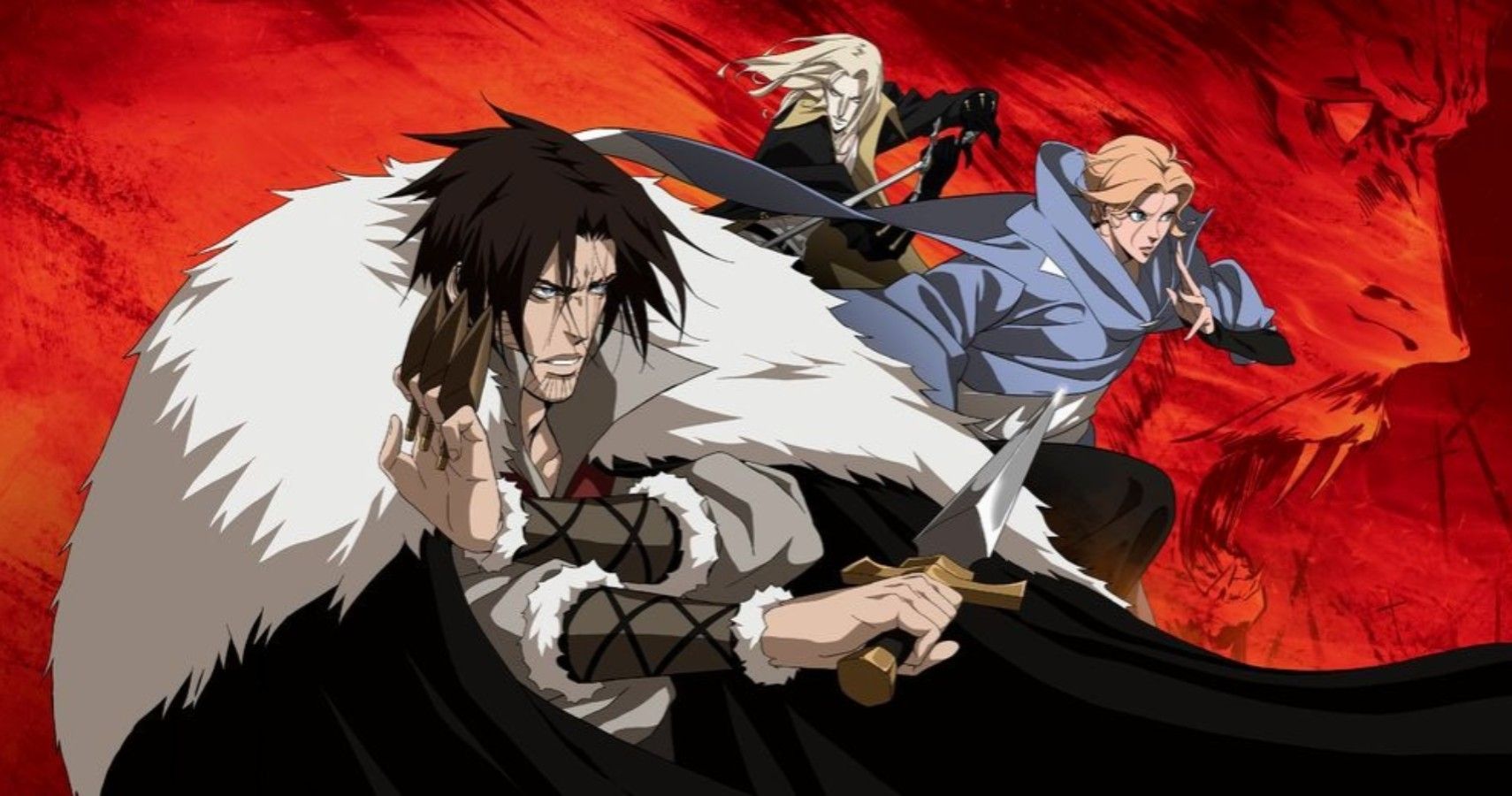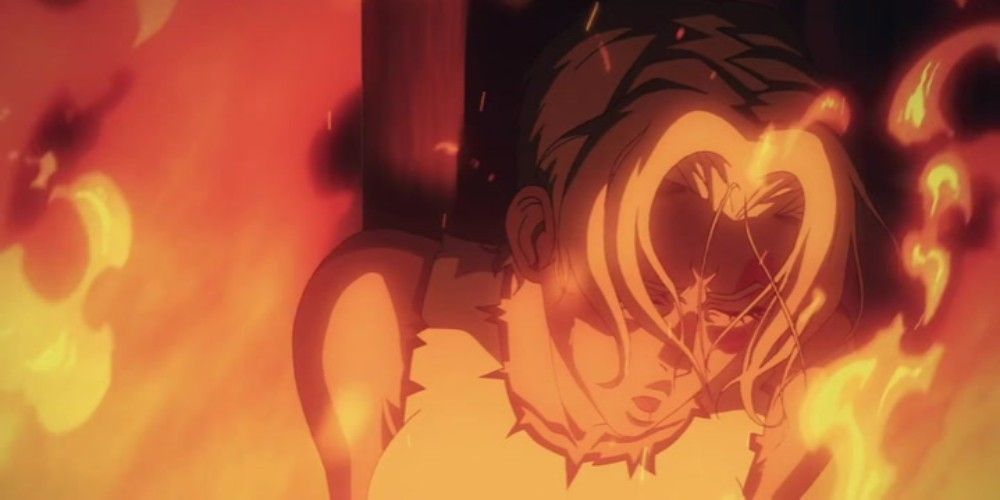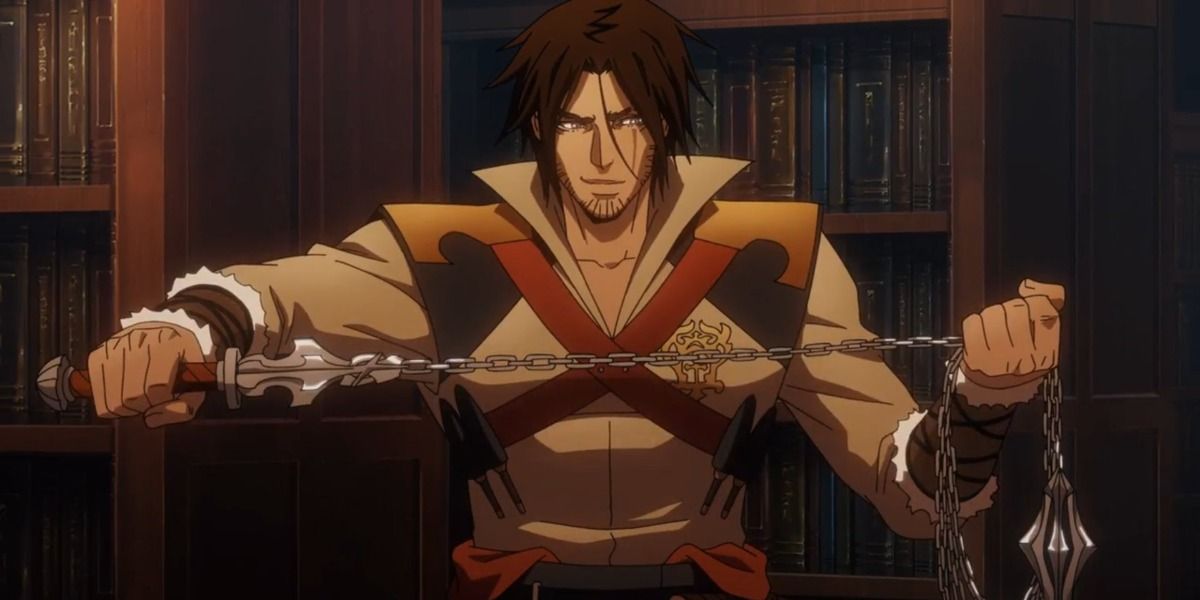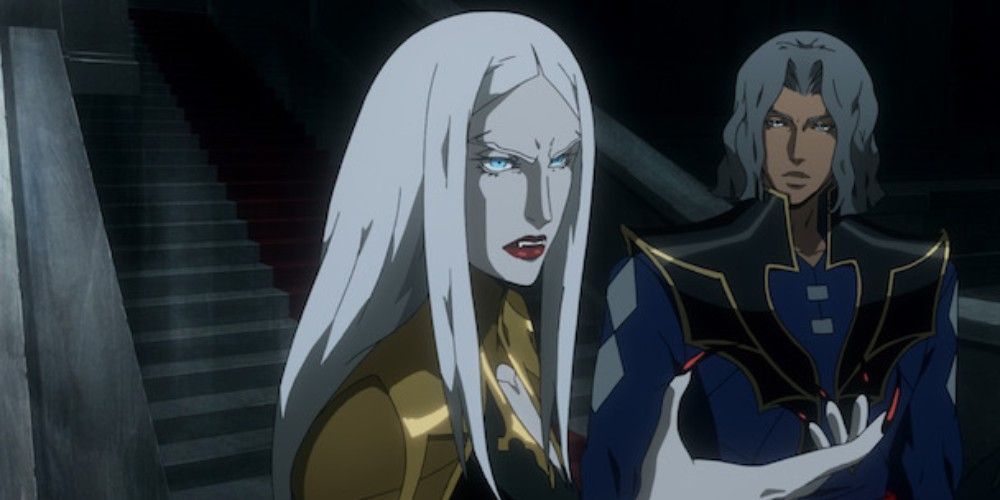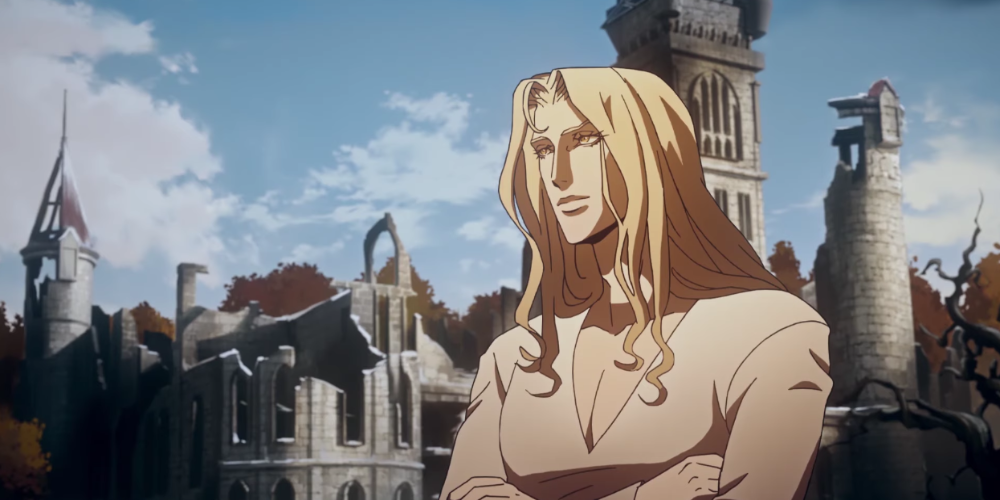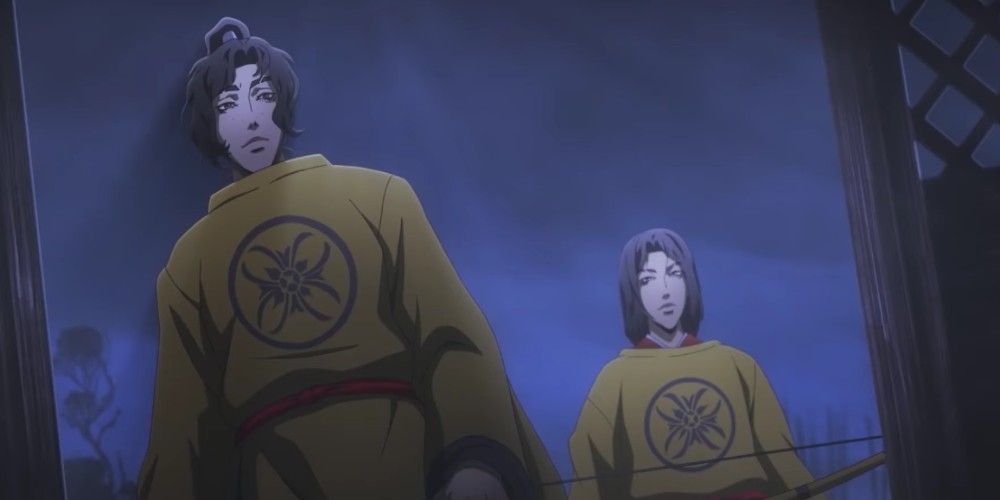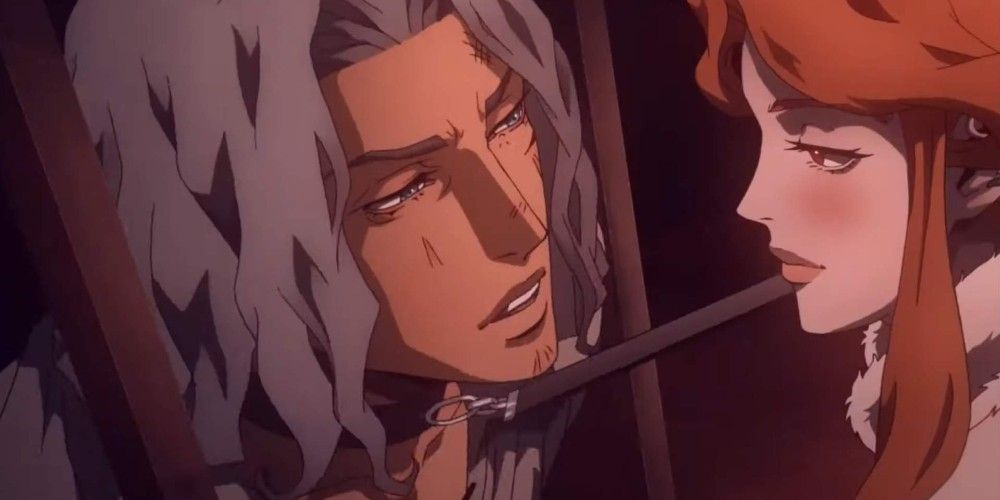The gothic fantasy series Castlevania has returned to Netflix for a triumphant third season, building on the momentum of the first two seasons to deliver a compelling storyline full of character development, action, and stunning visuals. Inspired by the hit video game series of the same name, creator Warren Ellis has taken fan-favorite characters like Trevor Belmont and Alucard and made them complex heroes, while Dracula remains a villain burdened by tragedy and loss.
Since its release in 2017, the series has been praised as one of the most successful adaptations of a video game to date, with beautiful animation, attention to lore, and a plot that can easily be followed by newly initiated viewers while drawing from several different games. Where it has suffered can be attributed to pacing issues, plot holes, and twists that do more harm than good.
LISA'S BURNING
Viewers were made aware in Season 1 that Lisa Tepes sought out Dracula because she valued his esoteric knowledge, and desired it for medical research. He may have been mistrustful of humans, but he found her fearlessness and compassion alluring, and they later married. When they had their son Alucard, he shared both human and vampire genetics.
Alucard shared many of his father's supernatural abilities, but had the added benefit of not being bound by a promise to "walk the Earth as a man." Therefore, he should have been able to rescue his mother when she was burned at the stake for witchcraft. The video games provide a reason (she told him not to), but the series decided to leave it out.
ALUCARD'S SACRIFICE
In Season 1, Dracula's son made a noble sacrifice and condemned himself to eternal slumber so that his father's murderous vampiric bloodline would die with him. The gesture conveyed a strong disdain for his monstrous side and an emphasis on his human humility and compassion.
By Season 2, after Alucard has been awakened by Trevor and Sypha and pledged to aid them in their fight against his father, now engulfing humankind in a bloody war, he suddenly has a strong distaste for Trevor's Belmont heritage, forged by slaying vampires. Not only does it not make sense for his character, but it also cheapens his sacrifice.
ALUCARD BEING THE SLEEPING SOLDIER
Dracula's son should be in his early twenties, presumably having gone into eternal slumber sometime after having a ruinous fight with his father after the loss of his mother. He can't have been asleep for more than a year or two when he's awakened once more by Trevor and Sypha.
However, Alucard already seems to have an ancient legend surrounding him called "The Sleeping Soldier," as told to Trevor by The Speakers. One theory is that The Speakers are prophets as well as historians, and the prophecy of the Sleeping Soldier hasn't happened yet but does foreshadow the plot from Symphony of the Night. But because of the age discrepancy, the reveal falls flat.
TREVOR TURNING THE MOB
Trevor Belmont isn't depicted as a particularly likable hero in Season 1, and at one point an entire angry mob is about to run him and Sypha through based on the castigation by their priest. The scene is set up to make viewers believe Trevor and Sypha are in real peril until a miracle happens.
Without any evidence or proof, Trevor turns the tables on the priest with just a few well-placed words, despite being from a family disgraced for practicing black magic. Medieval peasants were known for being deeply religious (it's how they contented themselves with their miserable lives), yet they instantly believe a heretic to the extent that they stab the priest repeatedly.
DRACULA'S LOSS OF POWER
The Dracula of Season 1 was a powerful uber vampire, the king of the undead, with powers that had more in common with a mage or sorcerer. After his wife Lisa is killed for practicing witchcraft, he unleashes the fires of Hell upon an unsuspecting peasant population. He commands absolute authority and rules over other vampires like a god.
When fans see him again in Season 2, he's become as Carmilla describes "a doddering old man" who prefers to lock himself up in his study rather than sit around squabbling vampire generals. He shouldn't need to summon them at all, but he definitely shouldn't be taking any insolence from them.
CARMILLA'S PLAN
As soon as Carmilla arrives at Dracula's castle it's pretty obvious she's up to no good. The bulk of Season 2 is devoted to the infighting of Dracula's underlings, and she supplies much of the melodrama by taking up several episodes with her plot to overthrow the Prince of Darkness.
Dracula should be aware of her sinister machinations, not just because she entreats everyone around her to participate, but because his allies should be reporting her to him, and because he should be omnipotent. Even a lowly castle guard should be keeping him updated when his vampire faculties of deduction fail him.
THE GENERALS USURPING DRACULA'S AUTHORITY
In Season 2, crushed by defeats from human forces at various townships, Dracula summons the generals in his war to his castle for a meeting of minds. They must strategize a way to overpower the humans and ultimately wipe out the stain of humanity, leaving the Earth for vampire kind.
Not only should the Dracula of the first season have no problem taking out large swathes of angry peasant mobs, but he should also not need to have a war council. His general should be able to do what Isaac did at the end of the season and turn the humans in their parts of the world into "new recruits" for their undead armies.
TREVOR GIVING ALUCARD THE BELMONT KEEP
At the conclusion of Season 2, after Alucard has vanquished his own father, he parts ways with Trevor and Sypha, who embark on an adventure to rid the rest of Medieval Europe from evil. Trevor decides to leave the Belmont house to Alucard, who he feels will be a much better steward for it.
Longtime fans of the Belmont clan not only have to see Trevor, the last of the Belmonts, once again shirk the responsibilities to his lineage, but also see Alucard shackled to a place that he spent the season denouncing as a shrine to the extinction of his vampire half.
ALUCARD'S DEMON HUNTERS
Alucard's story could have largely ended with Season 2, with his character only referenced in flashbacks or by major characters, but he's given plenty to do while adjusting to his solitary life in Dracula's castle. As it turns out, it's not so solitary, and he comes in contact with two demon hunters -- Sumi and Taka.
They become Alucard's unlikely protegees and maintain a very strange dynamic with him up until the final few episodes, when they suddenly betray him. This twist appears to be introduced for sheer shock value so that Alucard can muse poetically about how he's become "just like his father," and possibly become Dracula's successor, which would diverge from the game series quite drastically.
HECTOR'S IMPRISONMENT
At the end of Season 2, Hector had become Carmilla's new pet, and in Season 3, he's been passed around to all of her sisters -- Lenore, Morana, and Striga. They break the naive vampire general, mentally and physically, until he begins to lose all hope for any escape from his imprisonment.
When Lenore, the most physically dominant sister ends up the one to actually seduce Hector towards the end of the season and turn him into her slave, it isn't all that surprising. Hector knew that Carmilla wanted to use him to create an army, and yet because of an offer of sex, he became pliable enough for Lenore's ring trick.

